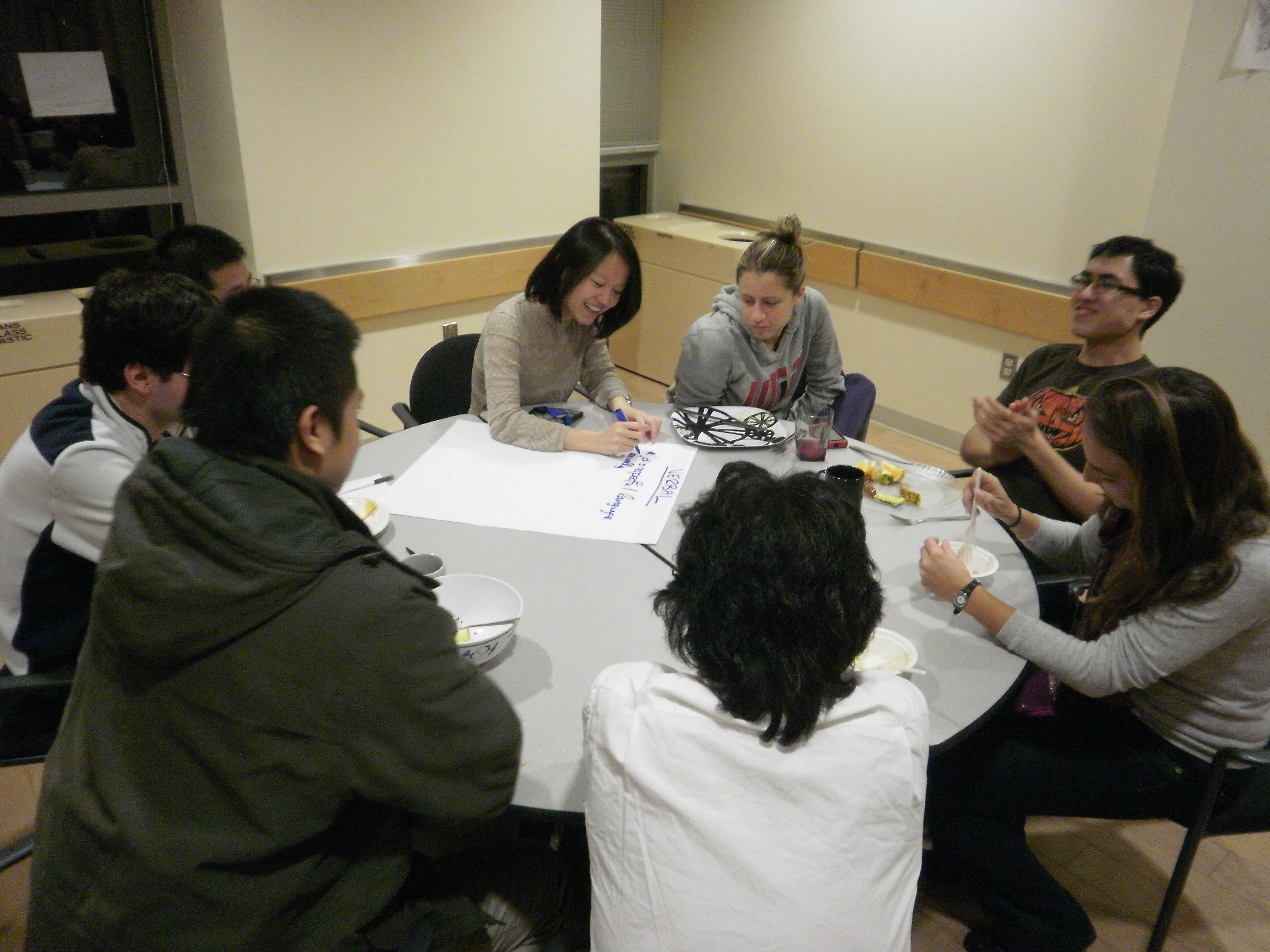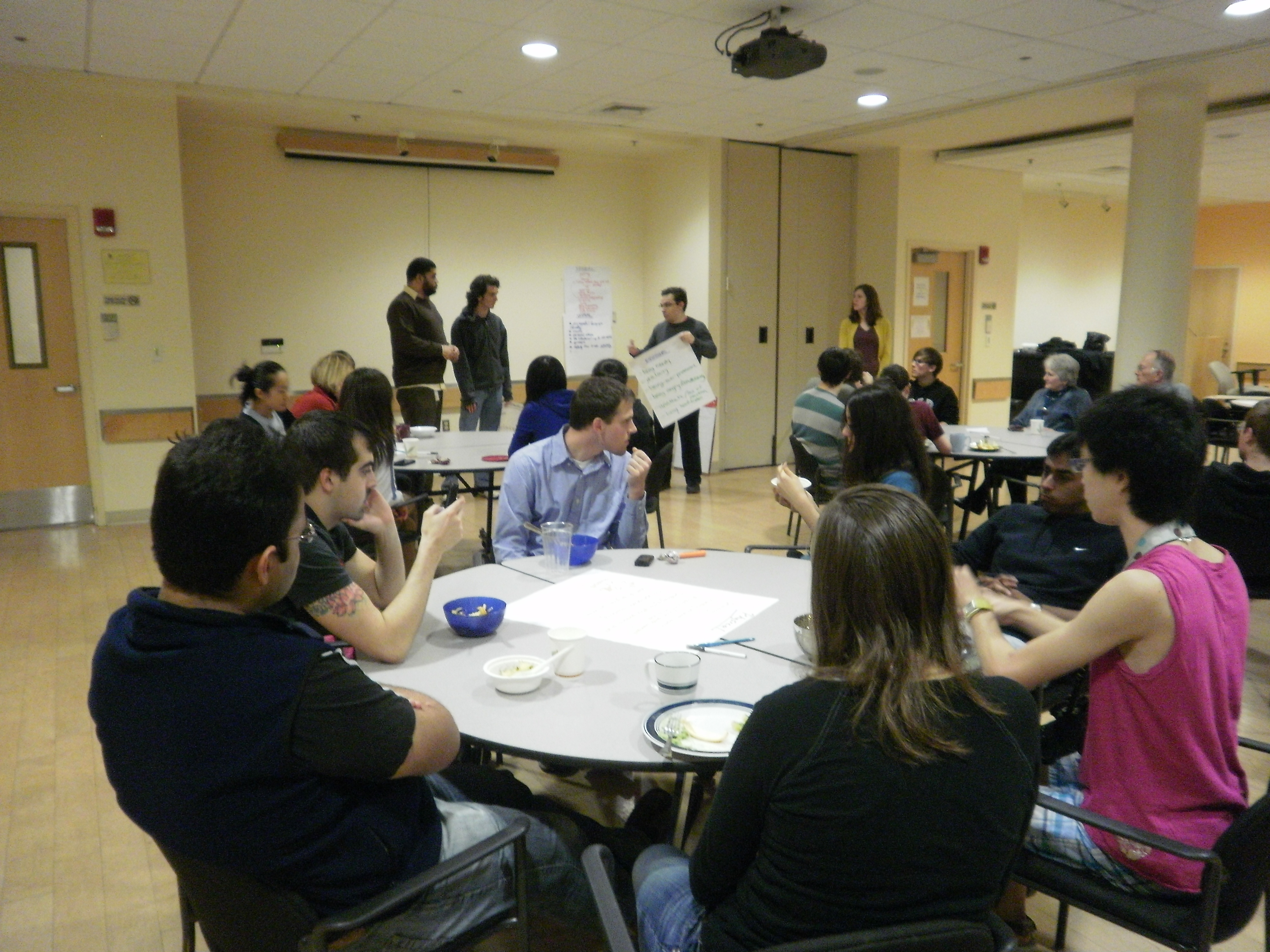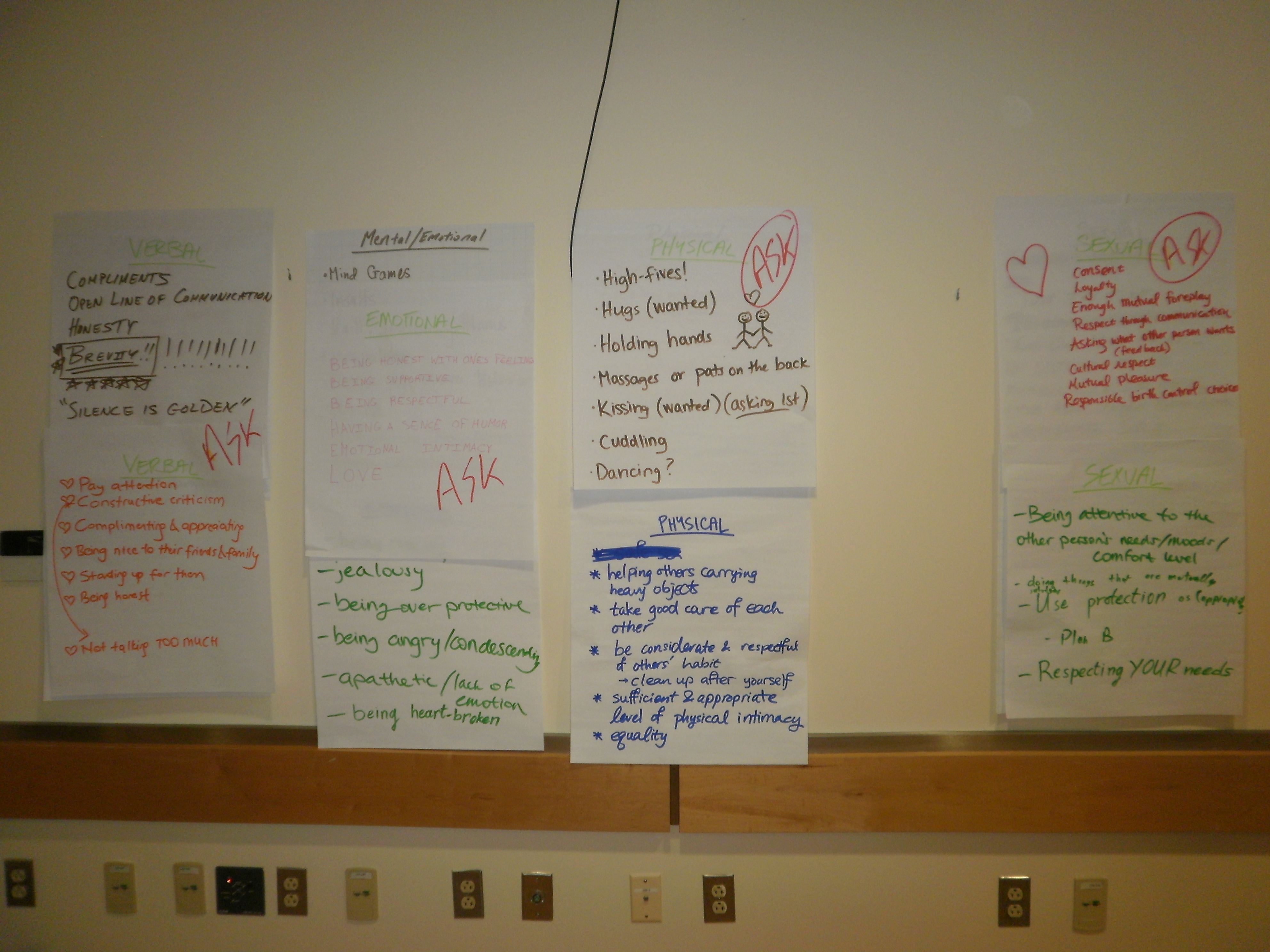Did you know there was a difference between “giving a hug” and “taking a hug”?
Well, if two people hug each other voluntarily, they would both be giving a hug; but if one person passionately hugs another who is not really willing to be hugged, then the latter would merely be receiving a hug passively.
So how do you know if someone would warmly give you a hug back, or take your hug uncomfortably? According to specialists Duane de Four and Kelley Adams from Community Wellness at MIT Medical, the key is as simple as a three-letter word: “Ask”!
In SPICE Coffee Hour on February 1, 2012, Duane and Kelley led 7 groups of over 40 SP residents to explore the elements of an abusive versus a healthy relationship. Participants brainstormed in groups to come up with destructive and constructive behaviors under four types of interactions in a relationship: verbal, emotional, physical, and sexual. (This order is also roughly according to increasing levels of intimacy, and it is better to spot and handle abusive behavior in early stages of this progression!)
Abusive behavior is usually the means to establish power and control over the other person. As Duane and Kelley reminded us, such an approach usually leads to hurtful results on both sides. On the contrary, a healthy relationship is characterized by respect. A great way to show love and respect is by effective communication and that not only through expressing yourself honestly and gently, but more importantly though often neglected, through listening patiently. This is why asking, instead of simply acting on your presumptions, is a good start, especially when it comes to interactions that may be perceived differently across cultures, such as hugging or kissing.
On second thought though, wouldn’t asking simply “kill the moment”? Isn’t it more “magical” or “romantic” if things “just happened”? Duane and Kelley left this as a challenge for us to ponder on: where did this stereotypical idea come from, and have we considered the alternative– to be respectful by asking? Indeed, it may be worth questioning ourselves: who or what are we letting ourselves be influenced by (The media? Popular culture? Other people?), and whether we are shaping our perspective towards relationships based on what is true.
So, next time when you’re unsure if giving a hug would be appropriate, you might want to consider this simple three-letter word: Ask!
By Annie Chen, SPICE Chair



